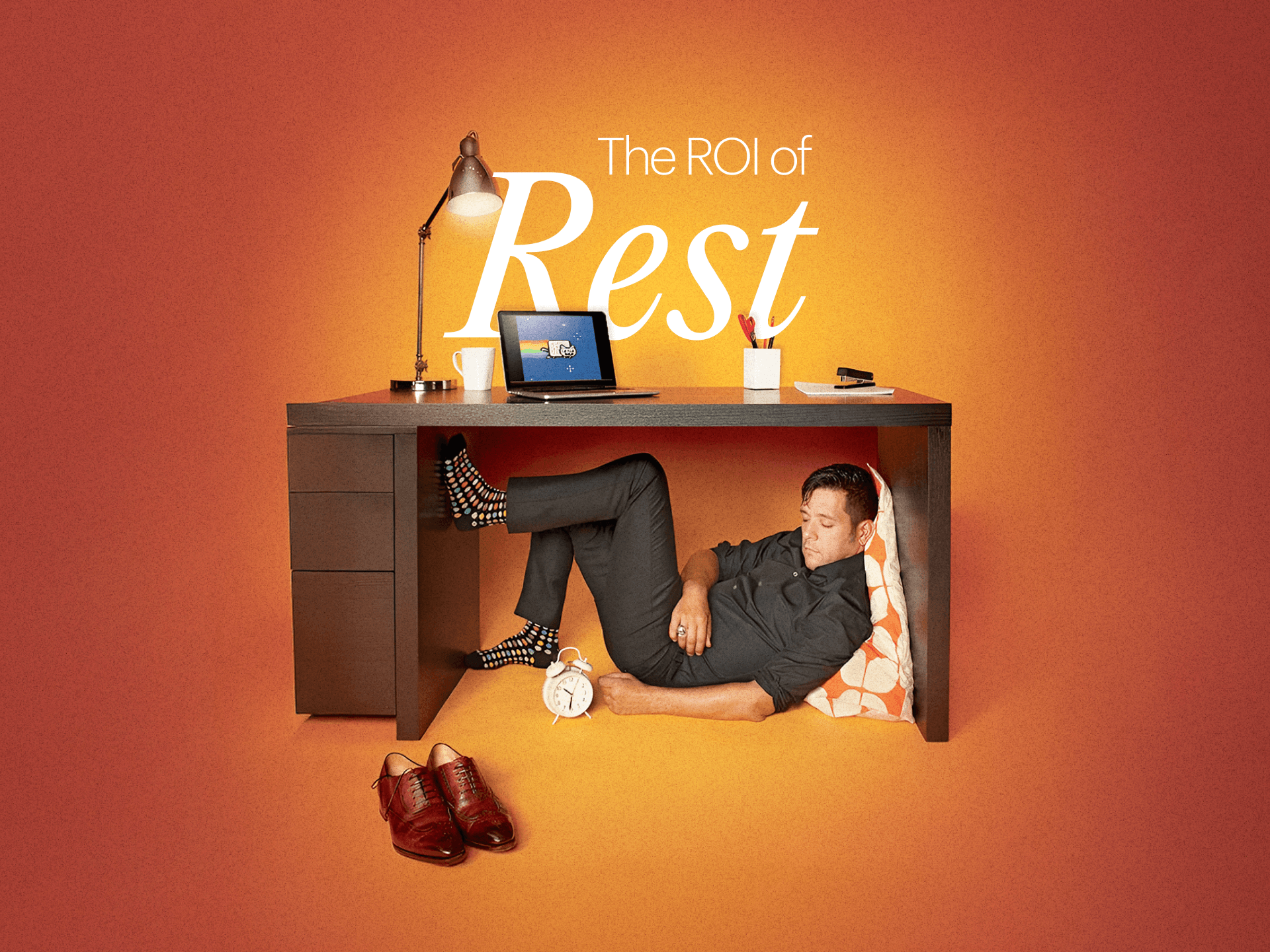The ROI of Rest
May 7, 2025
Hustle culture sold us a very polished lie: that exhaustion is a badge of honor, and if you are not overwhelmed, you must not be trying hard enough.
Thankfully, the science—and the experience of every creative person who has ever burned out—tell a different story.
Multiple studies, including a widely-cited Harvard Business Review report, have found that employees who regularly rest and recharge are not just happier but also significantly more productive.
In fact, taking regular breaks can boost productivity by up to 31% and increase creativity by 50%.
Those are not marginal gains; they are fundamental advantages for anyone trying to do meaningful work.
At the neurological level, rest is even more critical.
Research from the University of California, San Francisco, shows that the brain’s default mode network—the system responsible for imagination, future planning, and memory consolidation—is most active when we are resting, not when we are actively trying to solve problems.
In short, you are more likely to have a breakthrough idea while walking your dog than while staring at your project file at 11 PM.
We are intentional about protecting the space needed for real creativity to emerge, at a small studio.
In "The War on Focus," we talked about the dangers of digital dopamine hijacking our attention. Rest is one of the best defenses against that erosion of mental clarity.
Rest does not just improve how you feel; it improves how you think.
Well-rested brains are more agile, better at emotional regulation, and more capable of making sound decisions.
An MIT study even finds that moments when you are nodding off are sweet spots for creativity. You become even more creative after waking from the earliest stage of sleep.
Companies that normalize healthy rest habits are seeing lower turnover rates too. Deloitte’s recent research highlights that businesses that prioritize employee well-being can reduce voluntary turnover by 50%.
Investing in rest is not just an act of kindness—it is a strategy for better work and stronger teams. We often treat rest as a luxury we can only afford once everything important is done. But rest is not the dessert after the main course of work; it is the essential ingredient that makes the work possible in the first place.
If you wait to rest until you are already depleted, you are not managing your energy—you are gambling with it.
What would happen if you started treating rest as a critical part of your workflow instead of an optional bonus?
Peace.


